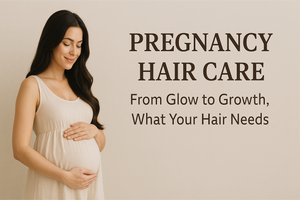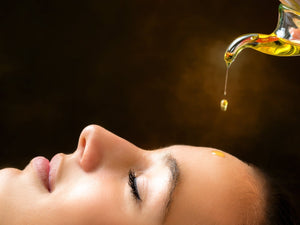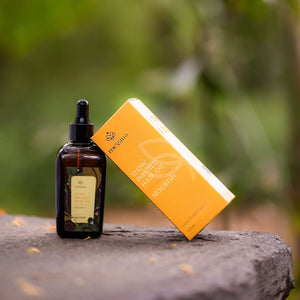Stepping into the 4th decade of life and staring into the mirror, we've all had that moment. Maybe it's noticing a few more silver strands or realizing less volume than before. It's a reflective pause, reminiscing about where all those youthful days went. Life got busy, and we might have even forgotten that we are changing, that we are aging.
No matter how young we may feel at heart, aging is inescapable. Aging brings change, and not even our hair escapes that march of time. But what makes us grow old, and why does our hair wither into that gray hue? You're not alone if you've ever felt that pang of worry about your changing hair.
Let's have an open conversation about "How Aging Affects Your Hair Growth," a straightforward exploration of what's happening on your head and why it matters. Understanding the why can often make dealing with the how much more effortless.
Understanding the hair growth cycle
From the outside, hair growth may seem like a seamless process. Still, if we peek closer, it is actually divided into four distinct growth phases.
Phase 1: Anagen
Your hair journey starts with the anagen phase, the longest phase lasting 3 to 5 years (and sometimes even more). During this phase, your hair follicles work hard to produce strands that will keep growing until you cut them or until they naturally fall out. About 90% of the hairs on your head are usually in this phase at any given time.
Phase 2: Catagen
This is a short transition phase of hair growth, like a bridge between growth and rest. It kicks in right after the energetic growth of the anagen phase and lasts about 10 days or so. During this short phase, hair follicles shrink, and the pace of hair growth begins to slow down.
Phase 3: Telogen
During the telogen phase, after the active growth and the brief intermission, your hair takes a well-deserved rest for around three months. Interestingly, hair doesn't actively grow during telogen but doesn't fall out, either.
Phase 4: Exogen
This is an extension of the telogen phase, where the hair starts falling out. This phase typically lasts about 2 to 5 months. Don't be alarmed if you lose around 50 to 100 hairs daily during this phase – it's entirely normal.
Interestingly, each phase operates on its unique timeline, influenced by age, nutrition, and overall health. But how exactly does aging affect the hair growth cycle? Read on to know more!
How does aging affect the hair growth cycle?

As the clock ticks, the aging process influences hair growth in several ways!
Reduction in the Duration of Hair Growth:
With aging, the duration of the anagen phase, the active growth phase of the hair cycle, significantly decreases. This reduction means that the period during which hair actively grows becomes shorter. As a result, hairs have less time to reach their full potential length before entering the subsequent phases of the cycle.
Reduction in the Diameter of Hair Shafts:
Aging reduces the thickness or diameter of hair shafts. As the diameter decreases, hair may appear finer, contributing to the overall perception of hair thinning or a decrease in hair volume.
Prolongation of the Telogen Phase:
Aging results in a lengthening interval between hair loss during the telogen phase and the emergence of replacement hair during the subsequent anagen phase. This longer interval means there is a delay in the regrowth of new hairs.
Hormonal Shifts:
Hormonal shifts, particularly the decrease in estrogen and androgen levels, play a crucial role in these changes in hair, leading to the overall aging process of the hair.
What factors influence hair aging?

Your hair's vitality is greatly influenced by the factors around you.
Dietary Pitfalls:
- Sugary snacks
- Excessive caffeine
- Highly processed foods
Lifestyle Blunders:
- Hot styling tools
- Stress-filled lifestyle
- Frequent chemical treatments
Environmental Aggressors:
- Seasonal changes
- Sun overexposure
- Neglecting pollution defense
Tips for aging gracefully
Dietary Factors:
- Ensure your diet includes various vitamins, minerals, and proteins.
- Nutrients like biotin, vitamins A and E, and omega-3 fatty acids contribute to healthy hair growth.
- Incorporate leafy greens, nuts, and fatty fish into your meals for a nourishing boost.

Lifestyle Choices:
- Avoid harsh chemical treatments.
- Practice moderation in heat styling.
- Establish a consistent hair care routine.
- Prioritize good sleep, manage stress, and exercise regularly to promote overall health, which reflects in the condition of your hair.
Environmental Influences:
- Wear hats or protective hair products to shield your hair from UV rays.
- Minimize exposure to pollutants, and consider periodic deep-cleansing treatments to rid your hair of environmental residue.
Genetic Blueprint:
- Recognize genetic predispositions, such as susceptibility to early graying or specific hair textures.
- Tailor your care routine to complement your unique genetic profile.






